Indian cinema under Hindutva influence normalizing anti-Muslim hate
By Mehdi Moosvi
The recently released Indian movie, The Kerala Story, has not only drawn criticism for its factual imprecision and the wrong portrayal of Muslims, but it also appears to feed on the growing trend of anti-Muslim hate in the country with the second largest Muslim population.
The storyline follows three nursing students from the southern Indian state of Kerala, who are abducted and brainwashed by the Daesh terrorist group, just to be forcefully converted to Islam. They eventually land in Afghanistan.
The movie takes a deep dive into the controversial subject of “Love Jihad” – a Hindutva conspiracy theory about non-Muslim women lured into marriage to convert them to Islam – and according to experts, pushes a false narrative that thousands of women from Kerala have been converted to Islam and recruited into the Daesh terrorist group.
The lead actor Adah Sharma who plays the role of an innocent girl named Shalini Unnikrishnan, who after her conversion to Islam is named Fatima Ba, in a viral trailer is seen standing in a mountainous region and sobbingly claiming that this is not only her story.
She claims that Hindu women are converted to Islam and so far 32,000 girls have been converted and buried in the graveyards of Syria and Yemen.
Barely a year after the release of the controversial film The Kashmir Files, this new, low-budget Hindi film, directed by Sudipto Sen, claims to be based on real-life incidents but actually is not.
Anuj Kumar of The Hindu newspaper in his review writes that the work of propaganda in the Kerela Story is “marred by half-truths and an emotionally exploitative gaze” and borrowed its understanding of Islam, etc. from "hate-filled WhatsApp groups” which sought to turn the audience into purveyors of hate by peddling “half-truths”.
In an interview with the Press TV website, political commentator and analyst Asad Rizvi said such propaganda movies are made to divert the audience from real issues.
“The most important role of the propaganda movies, whether it be the Kashmir Files or The Kerala Story, is to deviate the mind of the public from real issues the country is facing, like the soaring unemployment and the economic distress, and force them to focus on other issues,” Rizvi said in a telephonic interview.
“The local media plays a big role in the promotion of such movies and in changing the political discourse. When The Kerala Story was released, instead of debating over the economy or other critical issues, the media choose to talk about the newly released propaganda film.”
Propaganda and Indian politics
In the past few weeks, since the controversial film was released on May 5, there have been fresh tremors in the Indian political and intelligentsia circles, as the film has got strong support from the Sangh Parivar, (the Rashtriya Swayamsevak Sangh family) and umbrella term used to denote the collection of extremist Hindu organizations, while critics and minority rights activists have decried it.
On the day the movie was released, while rallying for state elections that his party lost to Congress in the south-Indian state of Karnataka, Prime Minister Narendra Modi openly promoted the film in a speech, and urged the people to go and watch the “ugly truth”.
“The Kerala Story film is based on a terror conspiracy. It shows the ugly truth of terrorism and exposes terrorists' design,” Modi said while addressing the crowd at a rally in Ballari, Karnataka.
After Modi openly promoted the film, several other politicians from the ruling Bharatiya Janta Party, (BJP), which is the political wing of the Sangh Parivar, along with Sangh sympathizers came out to do the same, which was severely criticized by Muslim activists and politicians.
“A Prime Minister of a country who took oath over the constitution drafted by (B.R. )Ambedkar, is promoting a movie which itself is a lie” lamented Asaduddin Owaisi, an Indian politician and Member of Parliament, who also heads the All India Majlis-e-Ittehadul Muslimeen (AIMIM).
The release of The Kerala Story comes on the heels of upcoming state government elections this year and union election next year, and points to the growing trend of propaganda films in Indian cinema, aimed at vilifying a specific community and stoking communal tensions.
Saurabh Kumar Shahi, a journalist and analyst who keeps a keen eye on Indian politics and foreign affairs, in an telephone interview with the Press TV website over the phone spoke at length about the intentions of the RSS and what it aims to do with minority Muslims in India.
“The goal of the RSS and the whole Hindutva ecosystem is to permanently damage the social fabric of this country, and create a Hindutva republic where Muslims become third-class citizens, with limited rights and very limited avenues for recourse,” said Shahi.
Propaganda takes over Bollywood
According to experts, the Indian film industry is walking in the footsteps of Nazi Germany to prevaricate, control and influence a specific group of audiences to achieve political goals.
Popular Indian YouTuber and social media activist, Dhruv Rathee in his video that he made to expose the horrors of the propaganda film, proved that the actual number of religious conversions was not 32,000 (as claimed in the movie) but just "three", and out of which only one girl was a Hindu.
During the video, Dhruv also accused the propagandists of being inspired by Nazi Germany’s “big lie” strategy that they use to brainwash the masses, ultimately convincing them to develop sympathy towards their side while loathing the Muslim side.
“Cinema is a smarter and quicker medium; the kind of hatred it creates at an investment of a very small amount of money, the return of which is very high,” Shahi explained.
“This is what the RSS and BJP are doing, as it is trying to utilize this medium to the fullest, just to arrive at their agenda,” he added.
The film was released in BJP-ruled states of India and was declared tax-free for watching. West Bengal, which is a non-BJP state, decided to uphold a ban on the screening of the film.
After the ban, on May 18, the Supreme Court of India while dismissing the hate and venom disseminated by the film, intervened and stayed the ban imposed by West Bengal and instead asked the producers to add a disclaimer that there is no authentic data to back up its claim that 32,000 women were forced to convert to Islam and join the Daesh.
“All the wings of the government, and the wings outside it, will work in tandem to reach their goal against Muslims,” Shahi asserted.
After its release, the film earned more than 560 million rupees ($6.8 million) in just five days, demonstrating the popularity of hate-centric films in the increasingly Hindufied Indian society.
“The problem with the entire Hindutva ecosystem, and with the films being produced, is that they cherry-pick incidents, and they don’t see it in a larger historical perspective,” said Shahi.
“It is a very simplistic take on events in history, and this same theme is welcomed by the general population, which is also simpleton in many ways, and this is the reason that these types of films are very popular.”
The Bollywood story of hate
Ever since the BJP-led Modi government came to power in 2014, the Bollywood film industry in India – which produces around 1000 films every year, almost double the output of Hollywood – has seen drastic changes, especially in terms of the distorted portrayal of Muslims in the movies.
Shahi believes that this trend was in vogue even before the Hindu nationalist BJP came to power, but matured to its real structure in the last nine years, since 2014.
“India has been using media, both television and cinema to attack Muslims in general and this has been going on for a long time,” he noted.
Movies made in these years, including The Kashmir Files (2022) Padmaavat (2018), Lipstick Under My Burkha (2016), Tanhaji (2020) and more recently The Kerala Story, have portrayed Muslims and Islam as antagonists who are barbaric, oppressive, harsh, uncivilized.
Critics say these films serve the purpose of propaganda by lionizing the main protagonist of the film and manipulating the audience’s understanding of history to push the ruling party’s majoritarian political agenda.
Last year’s controversial blockbuster film, The Kashmir Files, was a greatly exaggerated and extremely inflammatory portrayal of the killings of indigenous Kashmiri Pandits in the 1990s. The film blamed Kashmiri Muslims for it, while they had actually protected the minority Hindus.
“This Hindutva society which has been created, is replete with inferiority complex, especially against the Muslims because they consider the Muslims have ruled over them over centuries,” Shahi remarked.
“Their inferiority complex is derived from the events of these centuries, and that is why these movies are a way to get back those centuries, as one cannot do it in reality beyond a point, but in fiction when you keep showing that we did not lose that war, but we won it, it gives the viewers an ego massage.”
The alarming trend in the Indian cinema of dehumanizing minority Muslims worries Rizvi.
“Earlier the film industry was known for making movies that promoted Hindu-Muslim brotherhood and communal harmony, and used to be declared tax-free by the government,” Rizvi said, criticizing the government’s decision on making The Kerala Story tax-free.
“But unfortunately, now films that promote hatred and division are promoted tax-free films.”
Hypocrisy on human rights
After the death of 22-year-old Mahsa Amini in August last year, which sparked deadly riots across Iran, many Bollywood celebrities jumped on the bandwagon and tweeted their support to rioters, while being silent over the persecution of Muslims in their home country.
Indian actress and United Nations goodwill ambassador Priyanka Chopra was denounced for showing “selective outrage” after she spoke in support of deadly riots in Iran while she chose to be completely silent over a Hijab row in southern India’s Karnataka state when some Muslim students at a junior college were refused permission to wear Hijab to classes.
Indian journalist and anti-Hindutva campaigner Rana Ayyub took to Twitter to expose these celebrities and said that their activism was flawed.
“These ‘celebrities’ have stayed silent through state-sanctioned violence against Muslims. Their activism is obscene,” Rana wrote in a Twitter post in October 2022.
Kangna Ranaut, another popular Indian actress, who was once banned from Twitter for two years because of hateful conduct and abusive behavior, once wrote on Twitter that all Muslim religious leaders should be shot dead.
“Mullahs (Muslim religious leaders) + secular media stand them in a line and shoot them dead … they may call us Nazis who cares”.
During the #BlackLivesMatter protests in 2020, many Bollywood superstars rightly decided to speak up for George Floyd and against racism in the US, but opted to stay quiet against the persecution of Muslims in India, when they were being targeted during the Covid-19 lockdown.
Soumik Sen, director of the 2014 film Gulaab Gang, in an interview with VICE, said “only a very good filmmaker nowadays has the ability to show the nuance the cinema requires. Sensationalism is easy.”
“Cinema has never been devoid of politics. The only question is how do you promulgate and put forward your ideas,” Sen noted.
No oversight or accountability
Rizvi says that the seats at the country’s film censor board are occupied by governmental officials, who are most loyal to the ruling establishment and the ideology it promotes.
“The censor board prefers to look away from checking the right figures, and ignores the consequences the film would have on society,” he told the Press TV website.
“Before the BJP rule, such kinds of movies were not made, and neither the film censor board used to allow such communally charged films to be screened.”
Legendary Indian parallel cinema filmmaker, Satyajit Ray, believed that the Indian audience is “fairly backward”, as he felt that the films that he made were esoteric within the Indian audience.
Once, while defending one of his movies which targeted religious dogmatism, for which he was criticized for not being a Hindu and making films against Hinduism, he hit back at his critics.
“This happens in India all the time. We have a fairly backward audience here, in spite of the film society movement and all that, if you consider the audience at large, it is a backward audience,” Ray said in a 1989 interview.
"An unsophisticated audience, exposed to the commercial Hindi cinema more than anything else. You make the kind of films (you want to) and I make the kind of films that I want to make.”
You are what you watch
In many social media videos circulating online, people who watched The Kerala Story were seen chanting slogans against Muslims, which shows the level of indoctrination.
Shahi points to the “generational level destruction” that is happening in India through the medium of hate films, and how it has normalized the anti-Muslim hostility.
“These films have damaged two Indian generations without recognition. The kind of hatred, the kind of maliciousness, and the kind of visceral heat that two generations; people born in the 80s and 90s, and now the third one 2000-’10, have faced severe hatred being promoted,” he noted.
“These films are putting a very adverse impact on the society, as it is widening the gap between communal spot lines, creating an atmosphere of hatred, and is directly attacking the Indian society, secularism, culture, and the social fabric,” stated Asad.
Propaganda movies are very carefully crafted scene by scene, with the intent that whoever watches will follow the propagator's side to eventually do something towards making those ideas widely accepted, eventually becoming the characters of the movie itself.
On how propaganda films attack minds, Devika Kapoor, a Mumbai-based counseling psychologist in an interview with VICE explained how things go inside the human mind.
“[The] human mind has a way of simplifying complex ideas into not-so-complex compartments. This is where black-and-white thinking comes in,” said Kapoor.
“We want to fit ideas into boxes. It’s easier to pin the blame on somebody else and to believe that there exists “pure good” and “pure evil,” because it [reduces] cognitive load on our mind. Propaganda takes into account these tendencies.” she added.
The Kerala Story is currently running in theaters across India and also in the US and the UK.
Mehdi Moosvi is a Tehran-based journalist and researcher.
(The views expressed in this article do not necessarily reflect those of Press TV)
'Capitulation': Israeli officials and media concede Gaza defeat as truce unfolds
'Gaza has won': Social media users react to ceasefire with mix of relief, joy
Iran seeks South Korea’s assistance for AI, fiber-optic projects
VIDEO | Iran's 'Eqtedar' (Power) maneuver
Israel hits HTS military target in Syria for 1st time since fall of Assad
VIDEO | Press TV's news headlines
Israel has slaughtered 13,000 students in Gaza, West Bank
VIDEO | More Zionist than Zionists: Biden’s legacy to be defined by Gaza genocide


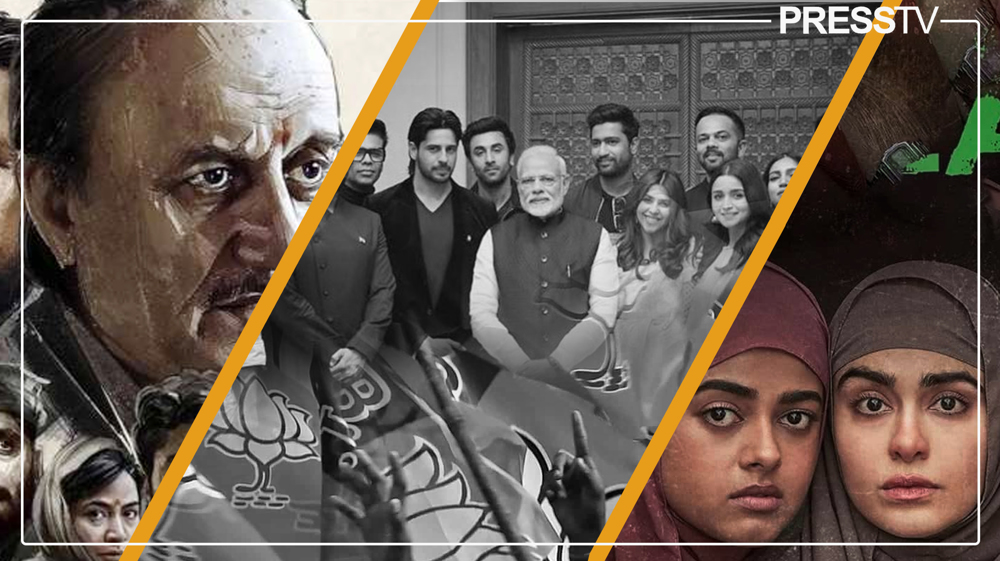

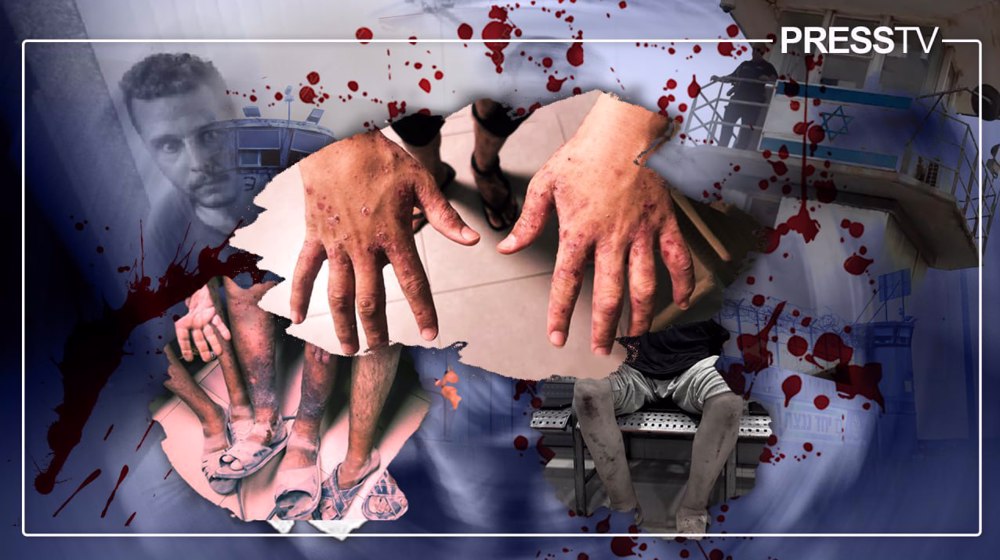
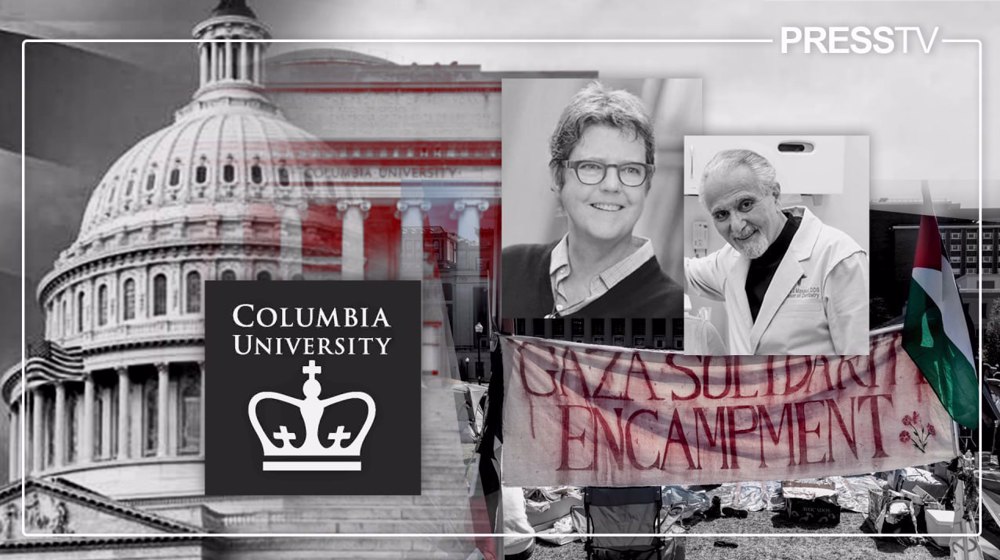



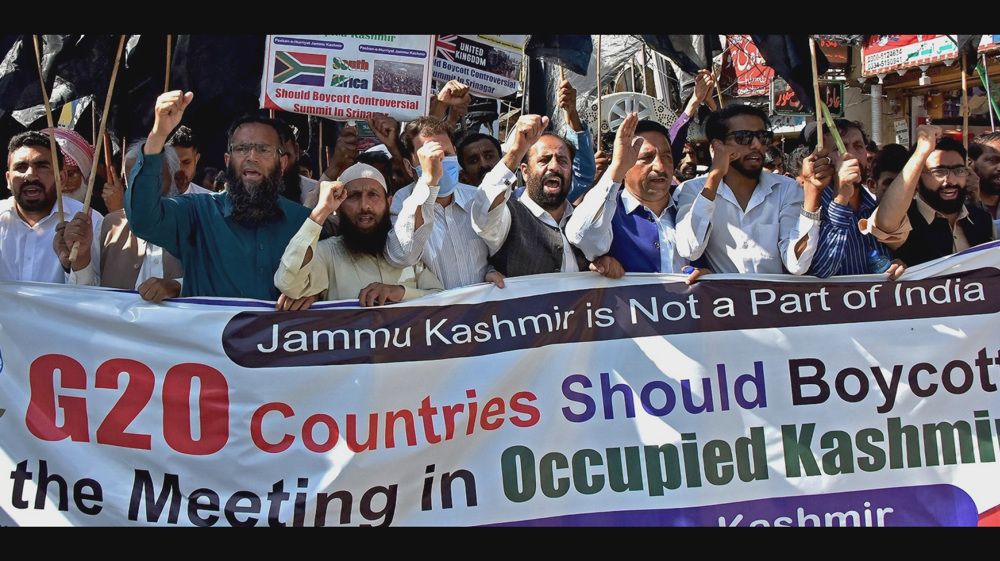
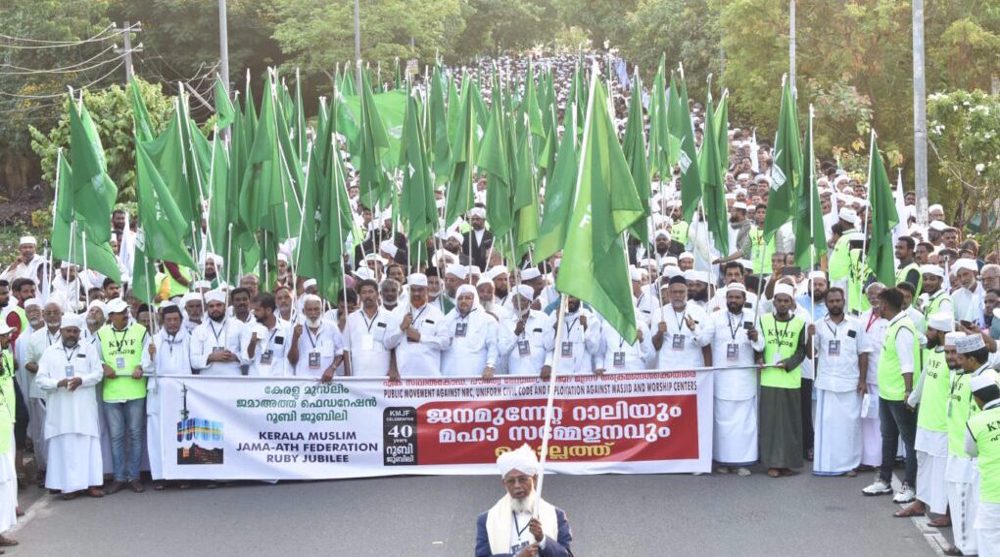
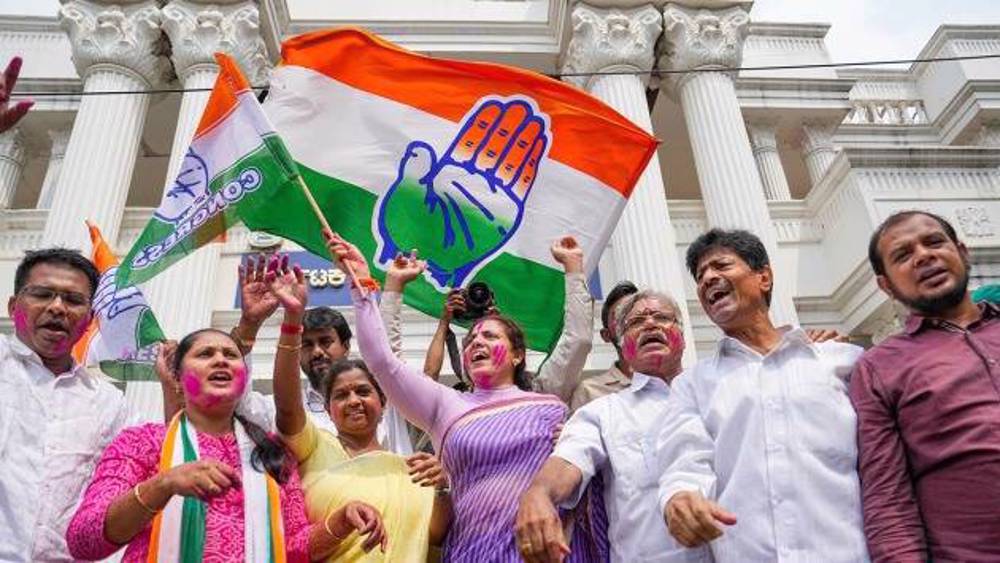
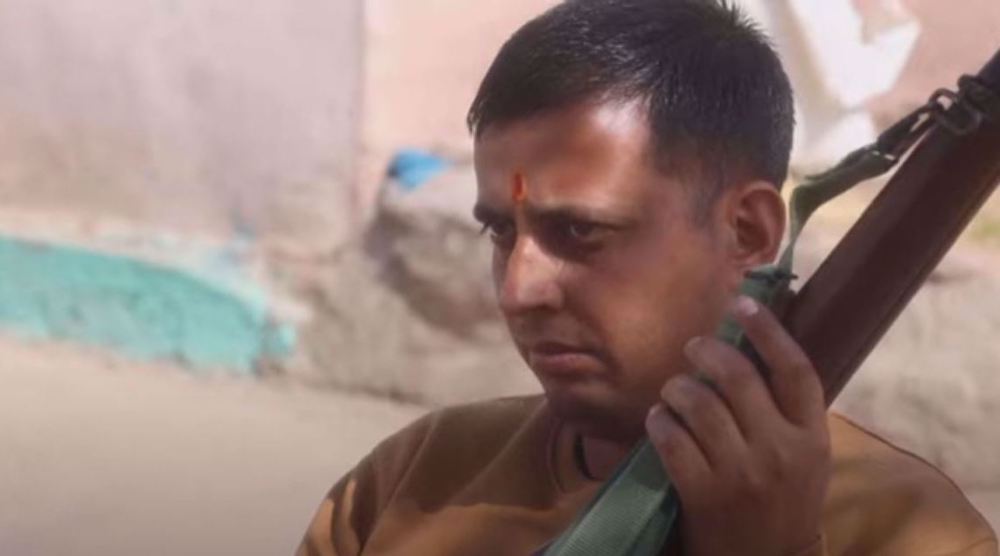
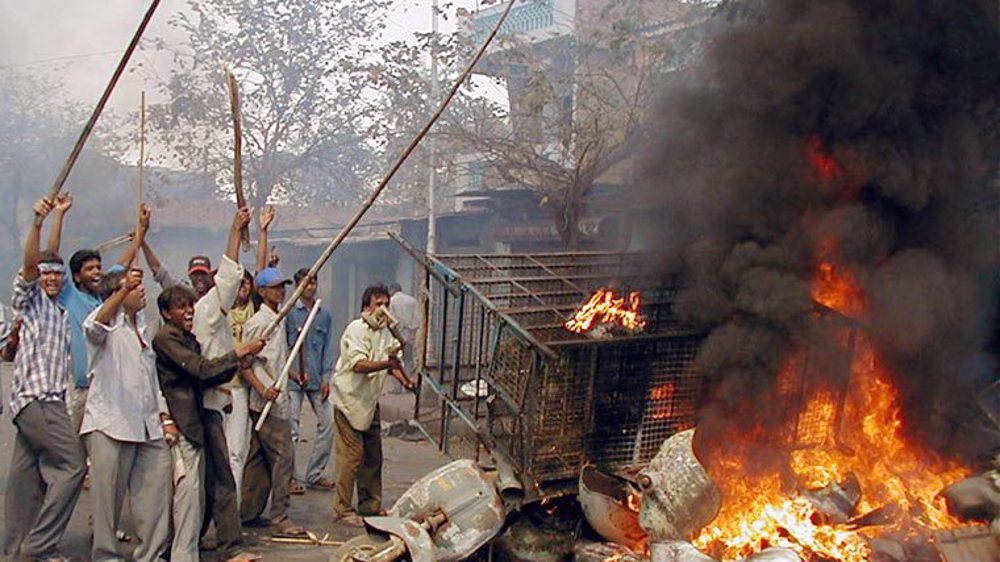
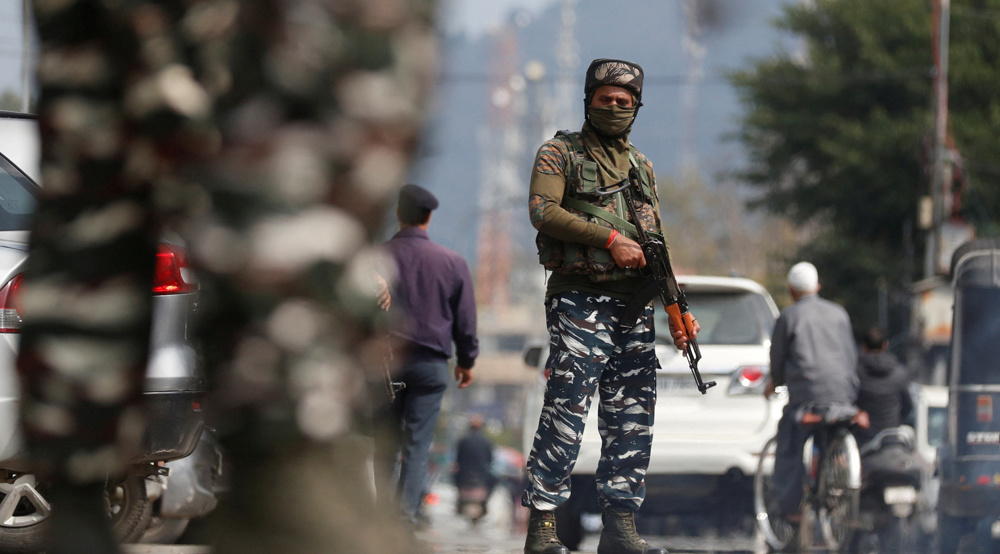

 This makes it easy to access the Press TV website
This makes it easy to access the Press TV website